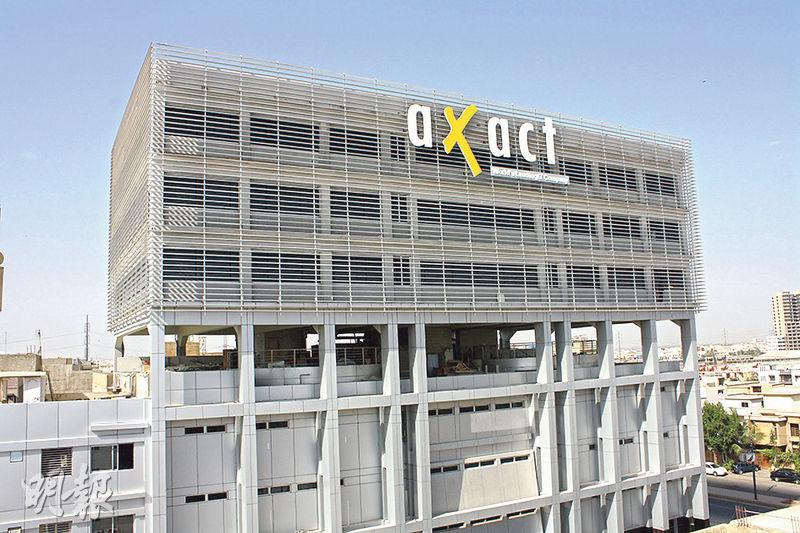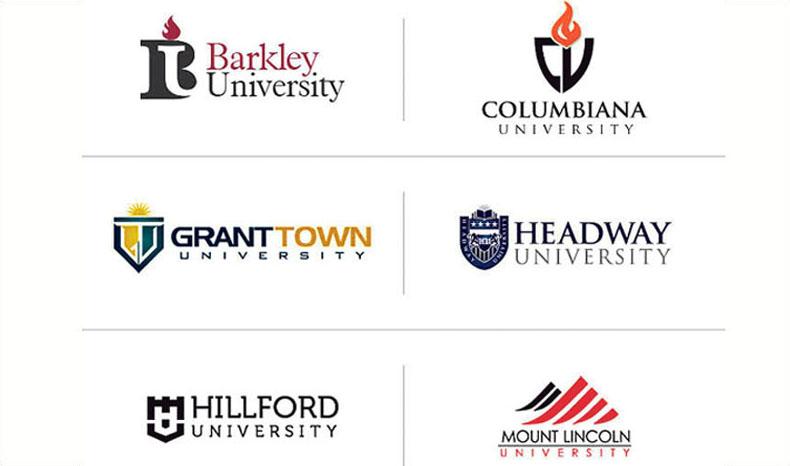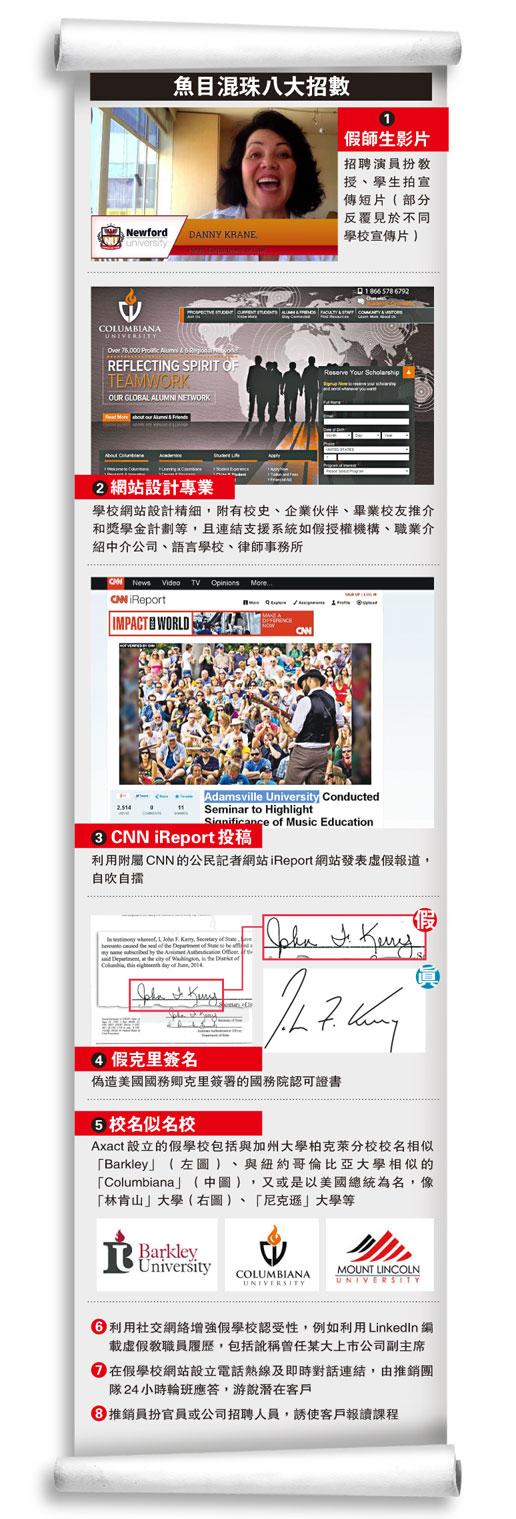假文憑王國建300網站斂財
《紐時》搗巴國軟件公司一條龍造假

美國《紐約時報》偵查揭發,巴基斯坦有科網商人利用網絡世界真偽難分的漏洞,虛構出由數百間大專院校組成的龐大教育王國,通過架設精細網站、虛假新聞報道等宣傳伎倆,多年來推出護理、土木工程等數十個有名無實的網上遙距課程,成功訛騙各地網民付款獲取假文憑,每月通過在迪拜、伯利茲、英屬處女島等地註冊的公司,進帳數以百萬美元計。
號稱巴基斯坦最大軟件出口商的Axact總部設於卡拉奇,職員逾2000人。該公司為員工提供優厚薪金與津貼,且像矽谷巨擎般備有泳池、遊艇等職員康體設施。然而《紐約時報》根據知情人士報料,並且分析法庭檔案與網站內容,發現其主要業務並非銷售軟件或設計網站,而是販賣假文憑。
「尼克遜大學」以假亂真
Axact涉嫌營運的網上假學校多擁有似乎家喻戶曉的名稱,如與加州大學柏克萊分校相似的「Barkley」大學及以美國前總統為名的「尼克遜大學」。虛構學府的網站均設計精美,無不宣稱歷史悠久,享譽全球,畢業校友遍及中國等多國的專業領域,個別更有連結美國有線新聞網絡(CNN)旗下網站iReport的報道推介、特聘演員扮「師生」的推薦影片等,每年令世界各地成千上萬人受騙。一些前職員稱,公司遠自2006年已日賺4000美元。有舊職員和詐騙專家估計,如今營業額增加至少30倍。
受騙埃及漢:有精美外國郵票
Axact的詐騙對象包括美國和波斯灣國家等人士。一名沙特男子花了40萬美元(310萬港元)購買假文憑和相關證書。一名埃及男子去年花了1.2萬美元(逾9萬港元)報讀「尼克遜大學」機械工科博士課程,獲「美國國務卿克里」簽名的證書。他受訪時還表示「確信那是真的」:「我以為那(文憑)真的來自美國。那(信封)有很多外國郵票,很精美。」
Axact推銷員由英語和阿拉伯語流利的高學歷巴基斯坦青年擔任。他們會24小時全天候輪班接聽依據網上指示打來的查詢電話,向有心網上進修的人推介約350美元(2730港元)的高中文憑乃至逾4000美元(3.12萬港元)的博士學位。
高學歷青年全天候接電話推銷
為了提高利潤,公司逼推銷員每月需達指定營業額。推銷員遂會有時模仿美國官員游說消費者購買昂貴的證書或認證文件,或假扮公司招聘人員打電話拉客,以優厚工作機會誘使他們報讀網上課程。一個拒絕公開姓名的前職員向記者說:「這是一盤以推銷主導的生意。」另一離職推銷員說:「他們會威脅顧客,說他們倘若不付足錢,他們的學位便沒有用。」
《紐時》指出,Axact的詐騙活動在2009年幾乎敗露。當年美國密歇根州一名女子受騙購買高中及大學文憑後,向該涉及的兩個網站興訟。這場官司演變為估計達3萬人的集體訴訟,但巴基斯坦籍被告堅決否認涉及Axact。官司雖已於2012年結案,但身分成疑的被告仍未支付2270萬美元(近1.8億港元)賠償。Axact回應查詢的律師信件指《紐時》說法屬以偏概全「陰謀論」。


搞手高調 自稱慈善家獲民心
Axact的老闆自稱是白手興家的慈善家,聲稱會將六成半收入捐出,誓言要在2019年前資助1000萬名國內小童讀書,獲不少對政府不滿的民眾支持。他更正在高薪挖角,籌備建立傳媒王國,謀變身為巴國最具影響力的傳媒大亨。
聲言捐六成半收入辦學
Axact創辦人謝赫(Shoaib Ahmed Shaikh)自稱在1房單位長大,家境不算富有。與一般軟件公司老闆不同,謝赫不愛使用電郵或手提電話,但野心甚大。他於1997年成立Axact,立下成為領先全球的軟件企業的目標,公司的圓底鷹標記與美國總統徽章類似。Axact的總部位於卡拉奇,擁有泳池,並有遊艇供員工享用,集團計劃興建中的新總部可以容納2萬人,特設單軌火車系統突顯佔地之大。
謝赫以慈善家自居,聲稱會捐出Axact六成半收益作慈善用途,去年更豪言要在2019年前協助1000萬名兒童讀書。他去年又成立一個協助解決小型民事糾紛的計劃,可謂對巴國千瘡百孔的司法制度當頭棒喝,這種作風在瀰漫對政府不滿氛圍的巴國社會特別受落。
高薪挖角
望成傳媒大亨
謝赫更正籌備成立傳媒集團Bol,最近在行內高薪挖角。他表示,自己受愛國主義推動,要向外展示「正面的巴基斯坦形象」,並豪言要超越美國微軟創辦人蓋茨,成為全球首富。
正義員工 辭職助受害者
在Axact集團千方百計誘導和威逼下,全球多地大批本來打算報讀網上課程的人上當受騙,有受害人因此欠下巨額卡數,導致抑鬱。該公司一名經常收到受騙者來電哀求退款的員工,不忿公司所為,毅然辭職,並助受害人取回血汗錢。
密歇根州麵包店員工洛伯(Elizabeth Lauber)一直在家接受教育,為了進入大學,她需要取得高中文憑。2006年,她致電「Belford High School」,對方要求她先付款249美元,然後讓她在網上做一份有20條題目的測驗。之後數周洛伯一直等候開課,結果竟收到校方直接寄來的「文憑」。她嘗試用文憑報讀一所地區大學時,被告知文憑是假貨。雖已事隔多年,但她說:「我真的很憤怒。」
9年前被騙 美婦仍憤怒
在阿聯酋阿布扎比任初級會計的39歲印度人莫漢(Mohan),去年5月付3300美元報讀「Grant Town University」的18個月商業管理網上碩士課程,隨後收到一部郵寄平價平板電腦,但沒有任何上課資料。之後,一名自稱是美國使館職員的人指莫漢缺乏英語資歷,於是他向Axact的「Global Institute of English Language Training Certification」付了7500美元,取得證書。「使館職員」一周後再逼莫漢付7500美元購買由「美國國務卿克里」簽署的「認證文件」。到9月,另一「代表阿聯酋政府」的男子指如果莫漢不為「文憑」申請本土認證,就會被驅逐出境,他驚惶下致電Axact銷售人員,結果同意再付款1.8萬美元。他因此欠下3萬美元卡數,停止匯款給家鄉的父母,又向剛產子的妻子隱瞞一切,陷入抑鬱。
為學費欠卡數
印漢抑鬱
在Axact內部審計部工作的賈姆希德(Yasser
Jamshaid)經常聽到付出數萬計美元的顧客致電哭求退款。工作3個月後,賈姆希德去年帶同涉款逾60萬美元的22名客戶資料辭職,然後逐一聯絡受害人,並提供方法助他們取回血汗錢。有些受害人以為這是另一個騙局,但莫漢選擇相信賈姆希德,成功取回3.13萬美元。
網上報讀易 假學歷歪風起
近年網上課程大行其道,不少民眾為取得漂亮履歷求職,選擇在網上報讀能迅捷地取得證書的課程,甚至故意「買學歷」,惟造假問題牽連甚廣。歐美先後揭發有政府人員持有假學歷,英國更有警方專家因偽造學歷被判囚,並導致700宗案件需重審。
英專家被揭假學歷 700案重審
網上高等教育機構Sloan Consortium聯同市場研究機構Babson Survey
Research Group進行的調查發現,美國去年報讀最少一個網上課程的學生超過520萬,超越當地接受高等教育的整體人數。然而提供網上課程的機構良莠不齊,不少未經政府機構認證,教育質素並無保證,亦有機構藉網上教學為名出售虛假證書圖利。
不少專家憂慮假學歷被用於詐騙,甚至危及公眾安全:2008年,美國曾揭發350名聯邦政府僱員持有由華盛頓州一間文憑工廠提供的假學歷,當中包括司法部官員;2007年,英國警方犯罪學家莫里森(Gene Morrison)因持有由Axact旗下「Rochville University」發出的假學歷被判囚,他經手的700宗案件需重新調查。
美國非牟利市場公信機構Better Business Bureau呼籲民眾留意網上教育機構的營運手法,避免以高價購入文憑工廠提供的假證書,如有疑問可查閱教育部門的資料庫,核實院校是否獲認證。
Fake Diplomas, Real Cash: Pakistani
Company Axact Reaps Millions
By DECLAN WALSHMAY
17, 2015
Axact, which has its
headquarters in Karachi, Pakistan, ostensibly operates as a software company.
Credit Sara Farid for The New York Times
Seen from the
Internet, it is a vast education empire: hundreds of universities and high
schools, with elegant names and smiling professors at sun-dappled American
campuses.
Their websites,
glossy and assured, offer online degrees in dozens of disciplines, like nursing
and civil engineering. There are glowing endorsements on the CNN iReport
website, enthusiastic video testimonials, and State Department authentication
certificates bearing the signature of Secretary of State John Kerry.
“We host one of
the most renowned faculty in the world,” boasts a woman introduced in one
promotional video as the head of a law school. “Come be a part of Newford
University to soar the sky of excellence.”
Yet on closer
examination, this picture shimmers like a mirage. The news reports are
fabricated. The professors are paid actors. The university campuses exist only
as stock photos on computer servers. The degrees have no true accreditation.
In fact, very
little in this virtual academic realm, appearing to span at least 370 websites,
is real — except for the tens of millions of dollars in estimated revenue it gleans
each year from many thousands of people around the world, all paid to a
secretive Pakistani software company.
That company,
Axact, operates from the port city of Karachi, where it employs over 2,000 people and calls itself
Pakistan’s largest software exporter, with Silicon Valley-style employee perks
like a swimming pool and yacht.
Axact does sell
some software applications. But according to former insiders, company records
and a detailed analysis of its websites, Axact’s main business has been to take
the centuries-old scam of selling fake academic degrees and turn it into an
Internet-era scheme on a global scale.
Axact makes tens of millions
of dollars annually by offering diplomas and degrees online through hundreds of
fictitious schools. Fake accreditation bodies and testimonials lend the schools
an air of credibility. But when customers call, they are talking to Axact sales
clerks in Karachi.
As interest in
online education is booming, the company is aggressively positioning its school
and portal websites to appear prominently in online searches, luring in
potential international customers.
At Axact’s
headquarters, former employees say, telephone sales agents work in shifts
around the clock. Sometimes they cater to customers who clearly understand that
they are buying a shady instant degree for money. But often the agents
manipulate those seeking a real education, pushing them to enroll for
coursework that never materializes, or assuring them that their life
experiences are enough to earn them a diploma.
To boost profits,
the sales agents often follow up with elaborate ruses, including impersonating
American government officials, to persuade customers to buy expensive
certifications or authentication documents.
Revenues,
estimated by former employees and fraud experts at several million dollars per
month, are cycled through a network of offshore companies. All the while,
Axact’s role as the owner of this fake education empire remains obscured by
proxy Internet services, combative legal tactics and a chronic lack of
regulation in Pakistan.
“Customers think
it’s a university, but it’s not,” said Yasir Jamshaid, a quality control
official who left Axact in October. “It’s all about the money.”
Axact’s response
to repeated requests for interviews over the past week, and to a list of
detailed questions submitted to its leadership on Thursday, was a letter from
its lawyers to The New York Times on Saturday. In the letter, it issued a
blanket denial, accusing a Times reporter of “coming to our client with
half-cooked stories and conspiracy theories.”
After the initial
publication of this article, Axact posted a public response on its website,
saying it would seek legal action. The statement begins, “Axact condemns this
story as baseless, substandard, maligning, defamatory, and based on false
accusations and merely a figment of imagination published without taking the
company’s point of view.”
Also after
publication, some of the testimonial videos and specific website contents cited
in this article were taken down without explanation.
In an interview in
November 2013 about Pakistan’s media sector, Axact’s founder and chief
executive, Shoaib Ahmed Shaikh, described Axact as an “I.T. and I.T. network services
company” that serves small and medium-sized businesses. “On a daily basis we
make thousands of projects. There’s a long client list,” he said, but declined
to name those clients.
The accounts by
former employees are supported by internal company records and court documents
reviewed by The New York Times. The Times also analyzed more than 370 websites
— including school sites, but also a supporting body of search portals, fake
accreditation bodies, recruitment agencies, language schools and even a law
firm — that bear Axact’s digital fingerprints.
In academia,
diploma mills have long been seen as a nuisance. But the proliferation of
Internet-based degree schemes has raised concerns about their possible use in
immigration fraud, and about dangers they may pose to public safety and legal
systems. In 2007, for example, a British court jailed Gene Morrison, a fake
police criminologist who claimed to have degree certificates from the
Axact-owned Rochville University, among other places.
Little of this is
known in Pakistan, where Axact has dodged questions about its diploma business
and has portrayed itself as a roaring success and model corporate citizen.


沒有留言:
張貼留言